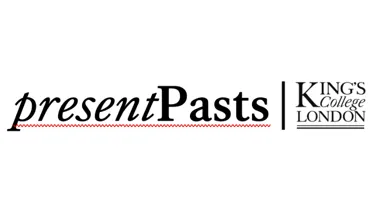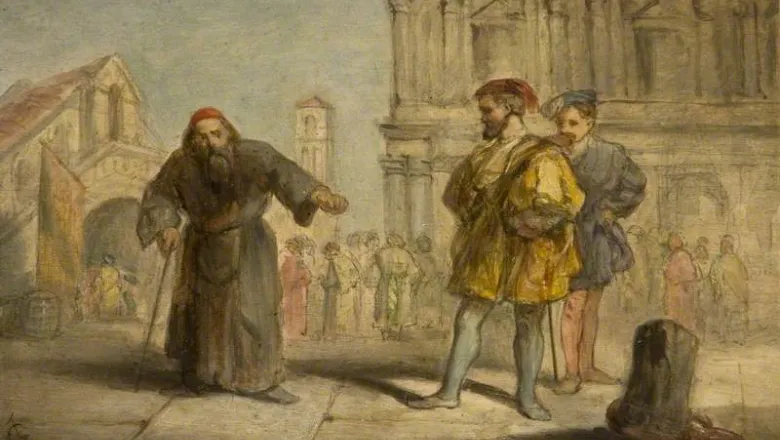
Dr Richard Ashby
British Academy Postdoctoral Fellow
Biography
I received my BA in English Literature from Royal Holloway, University of London, where I also received my MA in Shakespeare. I joined the Drama Department at Royal Holloway to take my PhD, which was awarded without corrections in 2018. My PhD was funded by the Arts and Humanities Research Council, via the TECHNE scheme.
I have taught at Royal Holloway as a Visiting Lecturer and guest lectured at the Shakespeare Institute. In 2020-21, I held the Visiting Research Fellowship at Senate House Library, London. I joined King’s in Autumn 2021 as a British Academy Postdoctoral Fellow.
I am a Fellow of the Higher Education Academy and hold various academic memberships.
Research interests and PhD supervision
- Shakespeare and his afterlives
- Early modern literature and drama
- Holocaust writing
- Post-war British theatre
- Continental philosophy, especially the Frankfurt School
My research concentrates primarily on the afterlives of Shakespeare, especially in post-Holocaust culture. My first monograph, King Lear ‘After’ Auschwitz: Shakespeare, Appropriation and Theatres of Catastrophe in Post-War British Drama (EUP, 2021), analyses appropriations of King Lear by post-war British playwrights, from Edward Bond to Dennis Kelly, and shows that dramatists have used the play to respond to the catastrophe of the Holocaust.
My postdoctoral project at King’s, ‘Shakespeare and Holocaust Writing: Testimony, Literature, Philosophy’, continues to investigate the relationship between Shakespeare and the Holocaust. It is concerned particularly with the way allusions to Shakespeare enable an intergeneric dialogue between testimony, literature and philosophy, as evidenced in the writings of Primo Levi, Elie Wiesel, Jean Améry, Imre Kertész and Vladimir Jankélévitch, among others. This research will form the basis of my next monograph. My project will also produce a new edited collection, provisionally entitled Shakespeare and Holocaust Culture.
I have published articles on various areas of Shakespeare Studies in Shakespeare, Textual Practice, Adaptation, Contemporary Theatre Review, Cahiers Élisabéthains, Comparative Drama and Shakespeare Bulletin, and I also have a new article due for publication in Shakespeare Survey. I have presented research at national and international conferences and, for ‘Shakespeare and Holocaust Writing’, I will be visiting various archives in the UK, Europe and America.
Selected publications
King Lear ‘After’ Auschwitz: Shakespeare, Appropriation and Theatres of Catastrophe in Post-War British Drama (Edinburgh: Edinburgh University Press, 2021).
‘Ghosts of King Lear: Dennis Kelly, Utopia and the Roma Genocide’, Shakespeare Bulletin, 38:2 (2021), pp. 185-203.
‘“Multidirectional” Shakespeare: Heiner Müller, Anatomy Titus: Fall of Rome, a Shakespeare Commentary, Postcolonialism, and the Holocaust’, Comparative Drama, 53:3 (2021), pp. 223-261.
‘“Retailed to All Posterity”: “Post-Truth”, Oral Tradition and the Popular Voice in Richard III’, Cahiers Élisabéthains, 103:1 (2020), pp. 6-20.
‘Face-off: Defacement, Ethics and the “Neighbour” in The Comedy of Errors’, Textual Practice, 32:8 (2018), pp. 1255-1275.
Teaching
I have taught Shakespeare, early modern literature and drama, post-war British theatre, and Critical Theory at undergraduate and postgraduate level.
Expertise and public engagement
In 2021 I gave the Charles Holden Public Lecture at Senate House Library, London, and in 2020 I was interviewed by Julia Lupton about Shakespeare and the Holocaust for the New Swan Shakespeare Centre.
I have interviewed a number of playwrights and novelists about Shakespeare, including Howard Barker, David Rudkin, Tim Etchells of Forced Entertainment and Preti Taneja. I also recently interviewed the Australian performance artist Deborah Leiser-Moore about her piece, Cordelia Mein Kind, which uses The Yiddish King Lear to reflect on intergenerational Holocaust trauma.
I was a co-organiser of the acclaimed international and interdisciplinary conference ‘Shakespeare and/as Philosophy’ in 2018, which won funding from both the Humanities and Arts Research Institute and British Shakespeare Association. This conference investigated the relationship between Shakespeare and philosophy, and the notion of Shakespeare as philosophy.
I am currently organising a new conference provisionally entitled ‘Shakespeare and Holocaust Culture’ for 2024, when the UK is set to chair the International Holocaust Remembrance Alliance, 80 years after the discovery of the death camps. I would be interested to hear from anyone who is working in these areas.
You can follow me on Twitter @DrRRJAshby.
Research

Shakespeare Centre London
Devoted to research, learning and teaching in Shakespeare and early modern literature and drama - in partnership with Shakespeare's Globe Theatre.

presentPasts
Across the Faculty of Arts & Humanities, King’s academics study cultural interactions across time and the transhistorical traditions that often frame, foster, and shape them.
Events

London Shakespeare Seminar with Dr Richard Ashby and Professor Alison Shell
Join Shakespeare Centre London for our second London Shakespeare Seminar of the year, hosted at King's College London with Dr Richard Ashby (King's) and...
Please note: this event has passed.
Research

Shakespeare Centre London
Devoted to research, learning and teaching in Shakespeare and early modern literature and drama - in partnership with Shakespeare's Globe Theatre.

presentPasts
Across the Faculty of Arts & Humanities, King’s academics study cultural interactions across time and the transhistorical traditions that often frame, foster, and shape them.
Events

London Shakespeare Seminar with Dr Richard Ashby and Professor Alison Shell
Join Shakespeare Centre London for our second London Shakespeare Seminar of the year, hosted at King's College London with Dr Richard Ashby (King's) and...
Please note: this event has passed.
